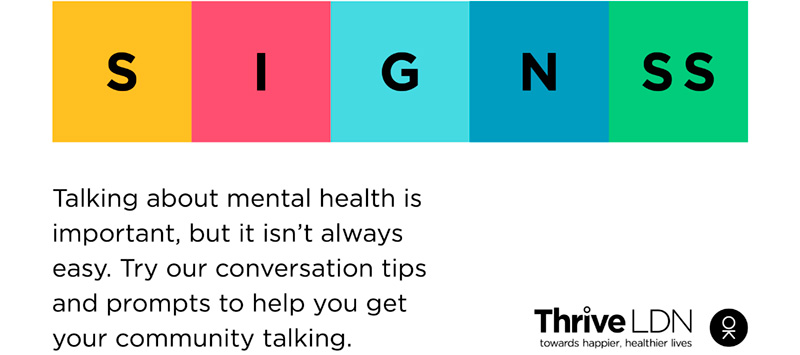
World Friendship Day – the importance of being kind and talking more about how we are feeling

World Friendship Day, also known as International Day of Friendship, takes place annually on 30th July.
To mark World Friendship Day, we are encouraging everyone to explore our conversation starter tool which provides tips and prompts to help you get your community talking.
The first World Friendship Day was proposed for 30 July 1958 by the World Friendship Crusade, an international civil organisation that campaigns to cherish a culture of peace through friendship. Many years later, in 2011, the 30th July was declared as the International Day of Friendship by the General Assembly of United Nations with the idea that friendship between peoples, countries, cultures and individuals can inspire peace efforts and build bridges between communities.
With the growing popularity of social media throughout the world, there has been an increase in celebrating World Friendship Day and International Day of Friendship online, as well as within local communities aimed at bringing those of different backgrounds together.
Sharing the human spirit through friendship
Our world has faced many challenges, crises, and forces of division — such as poverty, violence, human rights abuses, and now the COVID-19 pandemic. Each of these crises undermine peace, security, development, and social harmony among the people of the world.
The root causes to these challenges must be addressed by promoting and defending a shared spirit of human solidarity that takes many forms — the simplest of which is friendship.
Through friendship — by accumulating bonds of camaraderie and developing strong ties of trust — we can contribute to the fundamental shifts that are urgently needed to achieve lasting stability, weave a safety net that will protect us all, and generate passion for a better world where all are united for the greater good.
Our Thrive Together findings illustrated the importance of this further. Communities disproportionately affected by the coronavirus pandemic, who already experienced poorer social, economic and health outcomes, identified the significance of family and support structures, and the support offered by wider community and faith groups.
There is a clear relationship between resilience and coping with uncertainty, and the power of relationships, collectivising, and social networks. Yet, at a time when we all face ongoing uncertainty, these stresses on our relationships are probably all the harder to deal with. So, it’s worth trying to be extra patient and understanding, both with each other and also ourselves.
The importance of friendship
Some useful ways in which you can nurture your friendships are to:
- Be kind
- Stay connected & Be Present
- Listen and let yourself be listened to
- Open up, and make yourself available
- Show than you can be trusted and relied upon
So this World Friendship Day, explore our SIGNSS initiative which aims to help those supporting others in the community to normalise conversations about how we are all feeling.

Following the SIGNSS steps will allow you to start, maintain and safely close a conversation safely. It helps people have an everyday chat, and then provide a bridge for those who may need additional support.
Find out more
There is a clear need to examine community assets further and consider how they can be reinforced as a means of protecting Londoners’ mental health and building strength and resilience in the long term. Read our Thrive Together research on community and social networks.
There are a number of other resources and services available to support your mental health and wellbeing during this challenging time.
Digital resources available now
Good Thinking is a digital mental wellbeing service that has over 100 free, NHS-approved resources designed to help those dealing with anxiety, low mood, poor sleep or stress. Take the clinically validated self-assessment to get a better understand of what you’re going through, helpful resources and if necessary, relevant treatment options.
To help build resilience and maintain good mental wellbeing, Every Mind Matters has a range of resources for everyone at Including an interactive quiz, the Your Mind Plan, to get top tips and advice relevant for you.
NHS psychological treatments
If you do not require urgent support but are still concerned about your mental health, contacting your GP is a good place to start.
You can also refer yourself for free, non-urgent NHS talking therapy services, also known as Improving Access to Psychological Therapies services, which provide evidence-based treatments for depression and anxiety. In London, services are ready and open to receive self-referrals for those needing professional support.
Helplines
Or you may feel more comfortable talking to someone you don’t know by using one of the following helplines:
- If you, or anyone you know, is experiencing a mental health crisis and needs urgent assistance, advice or support, contact your local 24/7 NHS mental health helpline.
- Shout is the UK ‘s first 24/7 text messaging service for anyone in crisis. Text Shout at any time to 85258 to start a conversation.
- Samaritans’ free, 24-hour listening service on 116 123 or email jo@samaritans.org.